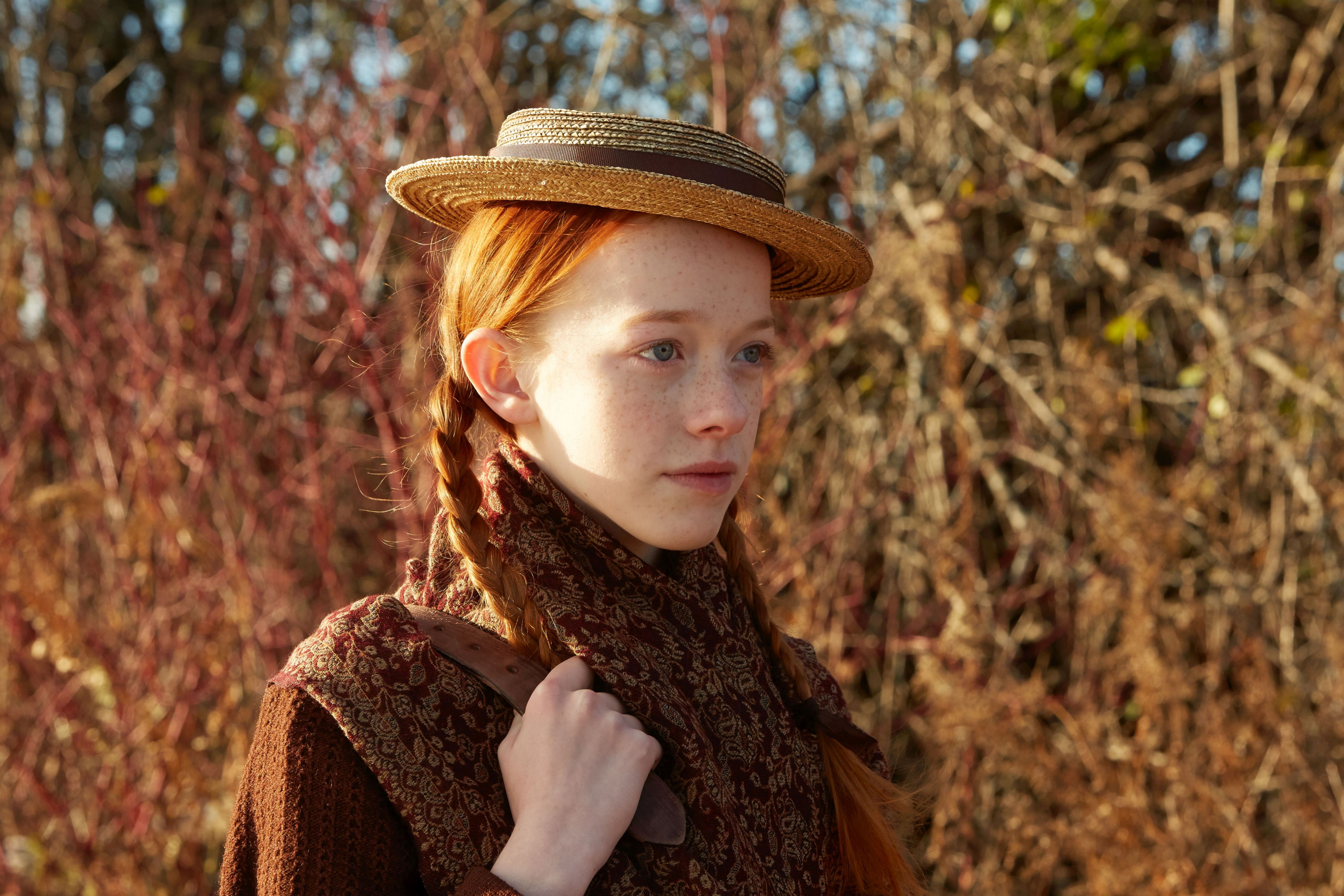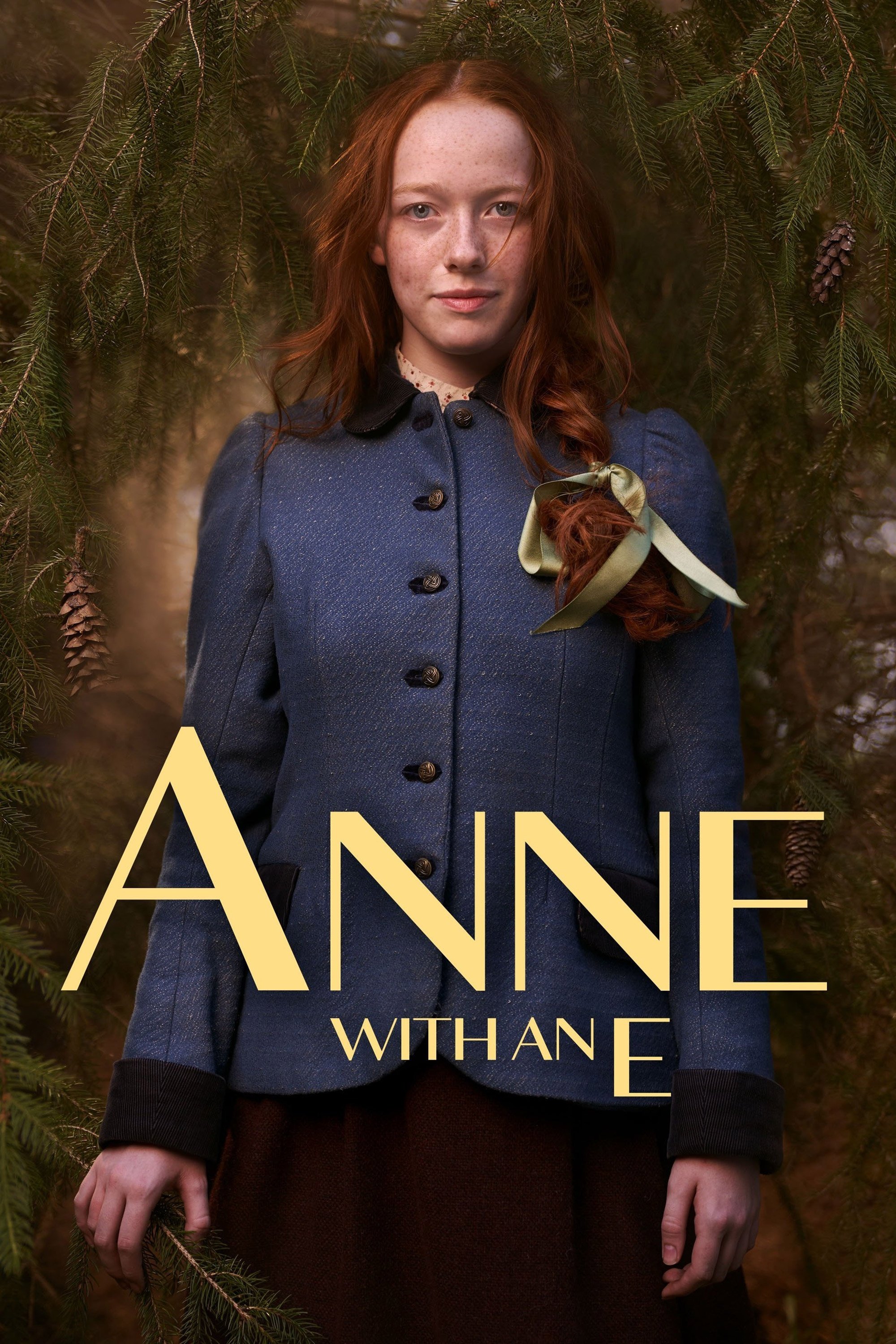Exploring The Spirit Of Anne Marie Proctor: From Green Gables' Charm To Digital Privacy
Sometimes, a name or a concept can open up a whole world of ideas and discussions. Thinking about Anne Marie Proctor, we find ourselves at the crossroads of classic storytelling and the very real concerns of our digital lives. It's almost as if this name invites us to ponder what truly matters, whether it's the heartfelt tales that shape us or the tools we choose for our daily online interactions. This exploration, you know, touches on themes of trust, discovery, and finding your own place, both in a fictional world and on the vast internet.
Our journey here, quite remarkably, draws from a unique blend of insights. We'll be looking at the beloved narratives surrounding Anne of Green Gables, a story that, in a way, speaks to the heart about belonging and imagination. Then, we'll shift gears slightly to consider the very practical, yet sometimes unsettling, realities of internet privacy and the browsers we rely on every single day. It's a bit of an interesting mix, to be honest.
This article aims to connect these seemingly different threads, offering a fresh perspective on how trust, security, and the search for a welcoming space resonate across various aspects of our experience. We'll delve into the charm of a classic story and, at the same time, explore the crucial choices we make for our online well-being. So, let's just see how these ideas intertwine, shall we?
- Alex Trebek Donated Jeopardy Wardrobe So Down On Their Luck People Would Have Clothes For Job Interviews
- Grayson Dolan Net Worth
Table of Contents
- The Enduring Appeal of Anne Shirley: A Look at Her Story
- Personal Details: Anne Shirley (from Green Gables)
- Finding Your Place: Themes of Belonging and Imagination
- The Quest for Online Trust: Browser Choices and Privacy
- DuckDuckGo: A Champion for Digital Anonymity
- Considering Alternatives: Bing and Browser Security
- Connecting Worlds: Imagination, Acceptance, and Digital Choices
- Frequently Asked Questions About Anne and Online Privacy
The Enduring Appeal of Anne Shirley: A Look at Her Story
When we think about Anne, a character who has touched so many hearts, we often picture a young girl with fiery red hair and an even more fiery spirit. The story of Anne of Green Gables, and its adaptation Anne with an E, really does center on Anne Shirley, a young orphaned girl. Her journey, set in Prince Edward Island during the late 1890s, is one of finding acceptance and her own special place in the world. It's a tale that, you know, just keeps drawing people in, generation after generation.
After a difficult childhood spent in orphanages and various homes, Anne arrives at Green Gables. She brings with her a vivid imagination and a sharp intellect. This new take on L.M. Montgomery's classic work truly shows Anne as she learns to navigate her new life. She transforms the lives of her adoptive family and the town that takes her in. It's a powerful narrative about fighting for acceptance and claiming your spot.
The series, initially called Anne for its first season in Canada, is a Canadian period drama television series. It's loosely adapted from Lucy Maud Montgomery's 1908 classic children's literature. You can discover reviews, ratings, and trailers for Anne with an E, even Season 1 on Rotten Tomatoes. Staying updated with critic and audience scores today is pretty easy. The adventures of this young orphan girl living in the late 19th century are, frankly, quite captivating.
- Toronto Mansion Featured In First Episode Of Schitts Creek Hits The Market For 15 Million
- Jordan Harbinger Net Worth
Personal Details: Anne Shirley (from Green Gables)
While the name Anne Marie Proctor is our focus, the provided text offers rich details about Anne Shirley, a beloved character whose journey resonates deeply. So, here's a look at Anne Shirley, the character who embodies so many of the themes we're exploring.
| Detail | Description |
|---|---|
| Full Name | Anne Shirley |
| Portrayed By | Amybeth McNulty (in "Anne with an E") |
| Origin | Orphaned, experienced an abusive childhood |
| Setting | Prince Edward Island, Canada (late 1890s) |
| Key Traits | Vivid imagination, strong intellect, determined, seeks acceptance |
| Adoptive Family | Marilla Cuthbert (Geraldine James) and Matthew Cuthbert |
| Primary Goal | To find her place and be accepted in the world |
Finding Your Place: Themes of Belonging and Imagination
Anne Shirley's story, in a way, is a beautiful illustration of how important it is to find where you belong. She arrives at Green Gables feeling like an outsider, but her spirit and unique perspective gradually win over those around her. This process of seeking and earning acceptance is something many people can relate to, whether it's in a new town or, say, a new group of friends. It's about making a space for yourself, really.
Her imagination, too, is a very central part of her character. Anne uses her imagination not just as an escape from a difficult past, but as a tool to understand and enrich her present. She transforms ordinary situations into extraordinary adventures, and this ability to see the world with fresh eyes is, perhaps, one of her most inspiring qualities. It shows us that even when things are tough, a bit of creativity can make all the difference.
The series really does highlight her fight for acceptance. Anne doesn't just wait for people to understand her; she actively works to show them her true self. This resilience and determination are powerful lessons, reminding us that sometimes, you have to stand up for who you are. It's a pretty strong message, actually, about self-worth and persistence.
The Quest for Online Trust: Browser Choices and Privacy
Now, shifting gears a bit, our digital lives also involve a significant quest for trust, particularly when it comes to the tools we use to access the internet. Just like Anne sought a safe and welcoming home, many of us are looking for a secure and private online space. My own experience, for instance, involved using Brave, but once I missed a letter and wrote 'l' instead of 'k', I automatically redirected to a virus site. It started to download a virus without my permission, so my trust dropped a lot. This kind of experience, you know, makes you think about changing things.
This incident really highlighted how vulnerable we can feel online. When a browser, which is supposed to be our gateway to the internet, leads us astray, it shakes our confidence. I'm thinking of changing, and I've seen a lot of good comments about DuckDuckGo's browser. It makes you wonder, doesn't it, about what alternatives are out there?
There are, however, many alternatives to choose from. If you are just getting started on your internet privacy journey, DuckDuckGo is a great and simple search engine to get started with. It's a private alternative to Google Search, as well as offering free browsers for mobile and desktop devices. We also have privacy extensions for most browsers. This focus on privacy is, frankly, a huge draw for many people today.
DuckDuckGo: A Champion for Digital Anonymity
DuckDuckGo, you see, is favored most because of its privacy measures and other things such as not tracking you. This commitment to user privacy is a big reason why so many people are turning to it. In an age where our online activities are often monitored, a tool that actively works against tracking feels like a breath of fresh air. It's been an independent company since its inception, which, you know, adds to its appeal for those who prefer alternatives to tech giants.
The search engine itself, DuckDuckGo, is very much focused on privacy, anti-tracking, and avoiding information filtering. It uses multiple sources to optimize search results and enhance content relevance. This means you're getting a broader view of information, not just what an algorithm thinks you want to see based on your past behavior. It's a different approach, to be honest, one that many find quite appealing.
Beyond the search engine, DuckDuckGo offers a full suite of tools for privacy-conscious users. Their free browsers for mobile and desktop devices, along with their privacy extensions for most other browsers, provide a pretty comprehensive solution. They aim to make privacy accessible and easy for everyone, which is, really, a significant step forward in the digital space. It's about empowering users to have more control over their data, and that's a good thing.
Considering Alternatives: Bing and Browser Security
While DuckDuckGo champions privacy, other search engines and browsers also have their place. To my opinion, Bing is a very good engine providing much accurate results than DuckDuckGo. However, since it's owned by Microsoft, a majority don't favor using it. This highlights a common dilemma for users: balancing search accuracy with concerns about corporate ownership and data practices. It's a choice many of us grapple with, isn't it?
The incident with Brave, where a simple typo led to an unwanted download, serves as a stark reminder of the importance of browser security. It's not just about privacy from tracking, but also about protection from malicious sites and downloads. A secure browser acts as a shield, keeping us safe from the less savory parts of the internet. This kind of protection is, very, very important for peace of mind.
Choosing a browser involves weighing various factors: speed, features, privacy policies, and security measures. What works for one person might not work for another. The key is to be informed and to pick a tool that aligns with your comfort level and needs. It's a bit like choosing the right kind of home; you want it to be safe, comfortable, and to fit your lifestyle, basically.
Connecting Worlds: Imagination, Acceptance, and Digital Choices
In a curious way, the spirit of Anne Marie Proctor, as we've explored through the lens of Anne Shirley's story and our digital privacy concerns, really does highlight universal themes. Anne's imaginative spirit allowed her to transform her reality, finding beauty and belonging even in difficult circumstances. Similarly, our choices in the digital world can transform our online experience, making it safer and more empowering. It's about taking control, you know, of your own narrative.
The search for acceptance, so central to Anne's journey, mirrors our collective desire for trust and security in the digital realm. Just as Anne fought for her place and acceptance, we, too, are seeking digital spaces where we feel respected and safe. This means choosing tools that don't track us without permission, and platforms that prioritize our well-being. It's a pretty fundamental human need, actually, to feel secure.
Whether it's the enduring charm of Anne of Green Gables or the practical considerations of online privacy, the underlying message is often about finding your footing and making choices that serve you well. These seemingly disparate topics, when viewed together, suggest a broader human pursuit: the quest for a better, more trustworthy world, both in stories we love and in the technology we use every day. Learn more about privacy on our site, and link to this page for more insights on online security.
Frequently Asked Questions About Anne and Online Privacy
People often have questions about the things we've discussed, from classic stories to modern digital tools. Here are a few common queries that might pop up when considering Anne and online privacy.
1. What is the main story about Anne of Green Gables?
The main story, really, centers on Anne Shirley, a young orphaned girl. She is sent to live with an elderly brother and sister, Matthew and Marilla Cuthbert, on Prince Edward Island. It follows her adventures as she grows up, uses her vivid imagination, and eventually finds a true home and acceptance in their lives and the community. It's a very heartwarming tale, you know, about belonging.
2. Why is DuckDuckGo considered a private search engine?
DuckDuckGo is considered private because it does not track your searches or personal information. It also aims to protect you from tracking cookies when you visit websites. Unlike some other search engines, it doesn't build a profile of your online activity. This means your search results aren't filtered based on your past behavior, which is, basically, a big deal for privacy.
3. How can I improve my online privacy beyond just changing browsers?
Improving your online privacy involves several steps beyond just changing browsers. You can use strong, unique passwords for all your accounts, perhaps with a password manager. Being careful about what personal information you share online is also very important. Regularly reviewing privacy settings on social media and other platforms helps a lot, too. And, of course, using a Virtual Private Network (VPN) can add an extra layer of security, really, for your internet connection.
- Original Big Bang Theory Stars Take Big Pay Cut Mayim Bialik Melissa Rauch Get Raises
- Billionaire Private Jet

Anne (with an E): Season Two Filming Begins for CBC and Netflix Series

Anne Hathaway 2024 Factions - Rica Venita

Anne with an E (TV Series 2017-2019) - Posters — The Movie Database (TMDB)